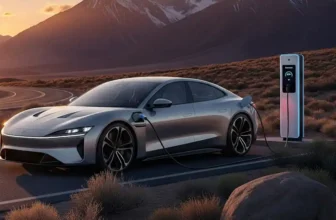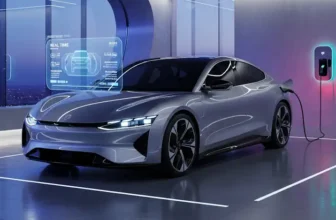
The Hybrid Advantage: Why These Cars Still Matter in an Electric World
With the conversation around personal transportation increasingly dominated by fully electric vehicles (EVs), it’s easy to overlook a mature and compelling technology that offers a balanced solution for modern drivers: hybrid cars. Hybrids are not a temporary stop on the road to an all-electric future; they are a smart, practical choice that continues to hold a vital place in the automotive landscape. By blending the efficiency of an electric motor with the convenience of a gasoline engine, hybrids offer the best of both worlds. This article explores why hybrids remain a powerful and relevant option for today’s drivers.
The Pragmatist’s Choice: Balancing Benefits and Practicality
For many drivers, a hybrid car represents the ideal balance between environmental responsibility and everyday practicality.
- Lower Fuel Costs, Less Hassle: Hybrid technology excels in urban and stop-and-go driving conditions, where the electric motor can take over, drastically reducing gasoline consumption. This means fewer trips to the gas station and significant savings over the car’s lifetime.
- No Range Anxiety: Unlike a full EV, a hybrid car eliminates range anxiety. The presence of a gasoline engine provides the peace of mind to embark on long road trips without having to plan around charging station availability or wait for a battery to charge.
- A Familiar Driving Experience: For drivers hesitant to make a complete switch, a hybrid offers a comfortable transition. The driving experience feels largely familiar, yet the quiet, smooth power delivery of the electric motor provides a taste of what’s to come in the electric future.
Understanding the Hybrid Spectrum: Finding the Right Fit
The term “hybrid” covers a range of technologies, each designed for a different type of driver and use case.
- Full Hybrids: The most common type, these cars can drive on electric power alone for short periods, typically at low speeds. They are ideal for city driving and are self-charging through regenerative braking, requiring no external plug.
- Plug-in Hybrids (PHEVs): These offer a larger battery and can be plugged in to charge. This allows them to function as a pure electric vehicle for daily commutes, with the gasoline engine available for longer trips.
- Mild Hybrids: These use the electric motor to assist the gasoline engine, providing a power boost and improving fuel economy. They cannot drive on electric power alone but offer a more affordable entry point into hybrid technology.
Busting Hybrid Myths: Performance and Reliability
Early hybrids were often criticized for being slow or uninspired. However, modern hybrids have completely dispelled these myths.
- Performance is Key: With the instant torque of the electric motor assisting the gasoline engine, today’s hybrids offer surprisingly brisk acceleration and a responsive driving feel. Many performance-oriented brands now offer hybrid powertrains that enhance, rather than detract from, the driving experience.
- Proven Reliability: Hybrid technology has been on the market for decades, and its reliability is well-established. The dual power system, regenerative braking, and often less-stressed gasoline engine can lead to a longer lifespan for many components, resulting in fewer repairs and lower long-term maintenance costs.
Hybrid Car Models
While the all-electric future is a clear destination for the automotive world, hybrid cars are not a relic of the past. They are a powerful, practical, and intelligent solution for the present. By offering a compelling blend of lower running costs, environmental responsibility, and unmatched convenience, hybrids continue to provide a significant advantage for drivers today. They are a testament to the idea that sometimes, the best solution is not one or the other, but an innovative combination of both.
Hybrid Car Models
This is a comprehensive list of popular hybrid car models. Please note that the availability of specific models can vary by country, and many automakers offer hybrid options for a wide range of their vehicles.
Full Hybrids:
- Toyota: Prius, Camry Hybrid, Corolla Hybrid, RAV4 Hybrid, Highlander Hybrid, Yaris Hybrid
- Honda: CR-V Hybrid, Accord Hybrid, Insight
- Hyundai: Ioniq Hybrid, Sonata Hybrid, Tucson Hybrid
- Kia: Niro Hybrid, Sportage Hybrid, Sorento Hybrid
- Ford: Kuga Hybrid (Escape Hybrid in some regions), Maverick Hybrid, F-150 PowerBoost
- Lexus: UX Hybrid, NX Hybrid, RX Hybrid, ES Hybrid
- Nissan: Qashqai e-Power
- Subaru: Crosstrek Hybrid
- Suzuki: Vitara Hybrid
Plug-in Hybrids (PHEV):
- BMW: X5 xDrive45e, 330e, 530e, 745e
- Mercedes-Benz: C-Class PHEV, E-Class PHEV, GLC PHEV, GLE PHEV
- Audi: A3 Sportback TFSI e, Q5 TFSI e, Q7 TFSI e
- Volvo: XC60 Recharge, XC90 Recharge, S60 Recharge, S90 Recharge
- Porsche: Panamera 4 E-Hybrid, Cayenne E-Hybrid
- Mitsubishi: Outlander PHEV
- Ford: Kuga Plug-in Hybrid
- Volkswagen: Golf GTE, Passat GTE, Tiguan eHybrid
- Hyundai: Tucson Plug-in Hybrid, Santa Fe Plug-in Hybrid
- Kia: Niro Plug-in Hybrid, Sportage Plug-in Hybrid, Sorento Plug-in Hybrid
- Jeep: Compass 4xe, Renegade 4xe, Wrangler 4xe
- Land Rover: Range Rover PHEV, Range Rover Sport PHEV, Defender PHEV
Mild Hybrids:
- Audi: A4, A6, A7, A8, Q7, Q8 (Many models offer mild-hybrid technology)
- Mercedes-Benz: C-Class, E-Class, S-Class, GLC (Many models offer mild-hybrid technology)
- BMW: Many models now come with a 48V mild-hybrid system (e.g., 5 Series, 7 Series, X3)
- Suzuki: Swift, Vitara, S-Cross
- Volvo: All new Volvo models are now equipped with mild-hybrid technology
- Alfa Romeo: Tonale
- Hyundai: Tucson (Some engine options)
- Kia: Sportage (Some engine options)




